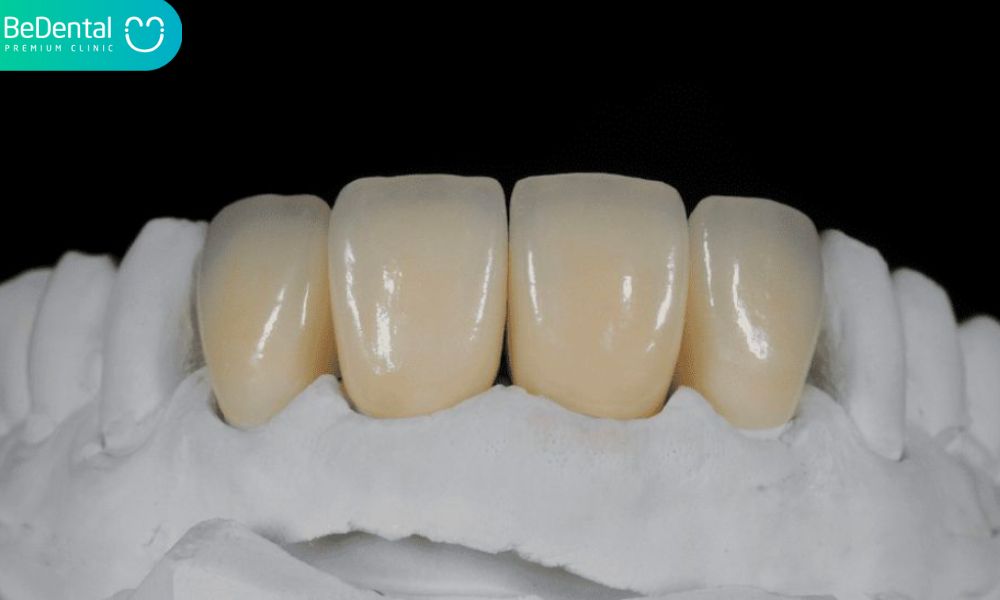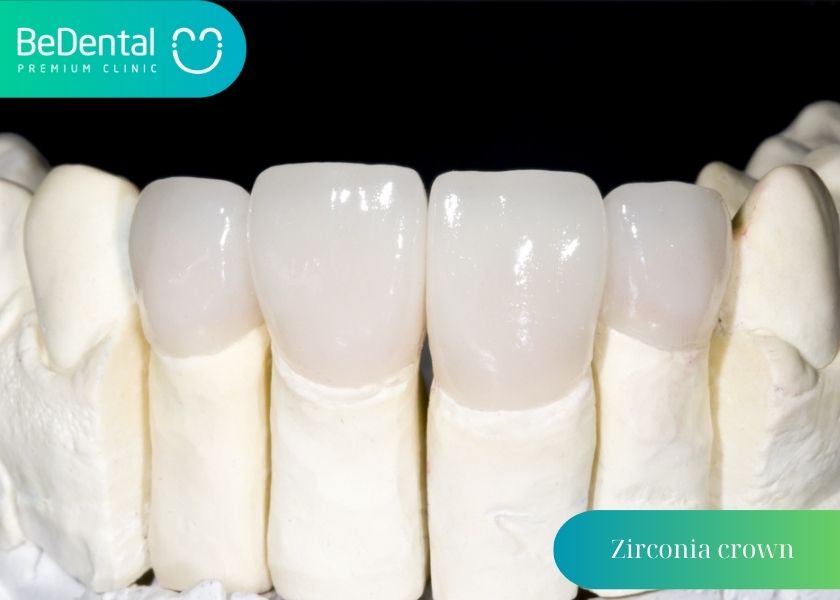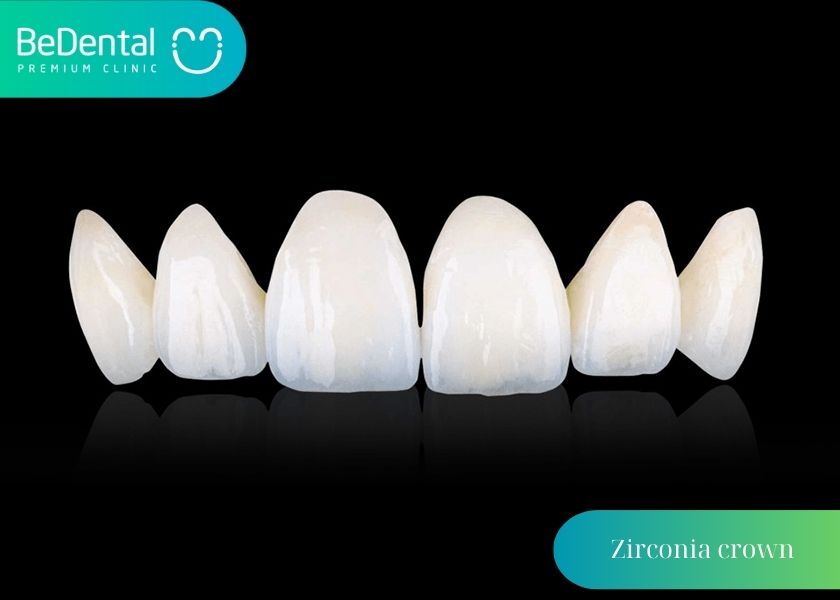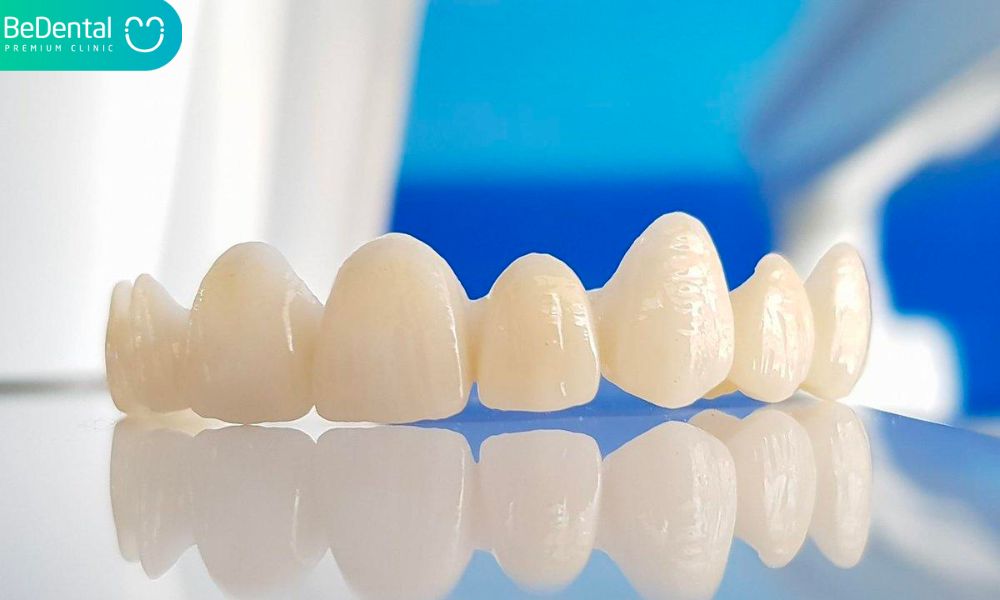Zirconia crowns are what? Are they truly necessary?
A tooth or a dental implant is covered with dental crowns, which are caps. Dentists frequently advise crowns as a technique to reinforce cracked, frail, or irregularly shaped teeth.
You have a variety of alternatives when it comes to the materials used to make crowns, including ceramic and metal. A zirconia crown is another choice that some individuals now have.
What are dental crowns?
Dental crowns are a coat that covers the visible area of the tooth. The form of each crown is determined by the original tooth. The benefit of porcelain crowns over metal-based crowns is an aesthetic component, since the replacement appears like the original, which is significant if you obtain the crown for your front teeth.

Why are dental crowns needed?
A porcelain crown could be something to think about if you:
- Do you currently have any dental injuries? Would you prefer to have a worn-out, fractured tooth fixed or to have a weak tooth kept from breaking?
- A dental bridge needs an anchor to remain in place.
- Want to improve your smile by straightening a crooked tooth?
- replace a filling that has become loose or fallen out in order to protect and maintain the teeth.
- have undergone a root canal procedure.
The function of porcelain crowns is to strengthen and lengthen the life of an existing tooth while also providing protection for the tooth.
What Is Zirconia?
One of numerous more recent materials that combines the durability of metal with the aesthetically pleasing, tooth-like appeal of porcelain is zirconia, a white solid ceramic glaze. Zirconia crowns are also regularly modified to enhance their functionality.
Advantages of Zirconia crowns
Zirconia is a white solid ceramic glaze with the visual, tooth-like appeal of porcelain and the strength of metal. Moreover, zirconia crowns are being updated regularly to increase their effectiveness. Here are some advantages of Zirconia crowns:
- They last a long time: Zirconia’s strength and longevity are two of its most important advantages. Think about how much pressure your back teeth are applying to the food you are chewing. Zirconia is a sturdy substance that can be a nice option for crowns in the rear of your mouth. Also, because zirconia is so sturdy, your dentist won’t need to do as much preparation for your tooth.
- One of advantages of Zirconia crowns is biocompatible: Because to its biocompatibility, which means it is less likely to trigger an immune response like inflammation in the body, many dentists choose zirconia. This is supported by an in vitro investigation from 2016 that similarly reported just a little degree of cytotoxicity.
- Because of their ability to be molded in the dental office and the fact that they require less preparation than other materials, you may get fitted for your crown and have it installed all in the same visit.
- Zirconia and porcelain can be stacked for a look even closer to natural teeth.
- You may get fitted and have your crown put in at the same session since they can be formed in the dentist’s office and need less preparation than other materials.

Disadvantages of Zirconia crowns
Like many other dental treatments, getting a zirconia crown has certain disadvantages.
- A challenge to match a zirconia crown has the drawback of being opaque, which may make it look less natural. That may be less of a problem for rear teeth, but it is especially true for monolithic zirconia crowns, which are totally constructed of zirconia.
- Zirconia crowns might fail if not prepared appropriately. Not all dentists have received the required training in zirconia crown preparation. Also, not all zirconia is made the same. Certain zirconia may not have the strongest formulation possible.
- Possibility for wear on adjacent teeth: Zirconia’s strength is one of its many benefits, but occasionally a tooth can be a touch too robust. The strength of zirconia can be viewed as a drawback, for instance, if your dentist wants to file the crown to prevent damage to a natural tooth or modify the crown to balance out your bite.
Zirconia crown cost
Dental crowns in general can be very expensive, ranging between $800 and $1,500.
Zirconia crown cost is generally more expensive than other types of dental crowns, such as ceramic, metal, and porcelain. They cost between $1,000 and $2,500. The cost is also affected by your geographic location.
Your insurance company may not pay for a crown. However, it’s always a good idea to check with your insurance company to see if they cover all or part of the cost of a crown, or if they cover specific types of crowns.

Other types of dental crowns
Permanent crowns can be made out of many different materials. These materials can include:
- Dental crowns can be made from a variety of metals, including gold, palladium, nickel, and chromium. The least likely to break or shatter, wear out slowly, and need just a little amount of tooth removal are metal crowns. The primary drawback of this kind of crown is its glossy appearance. The metal crowns on this style of crown are its worst flaw. Metal crowns are a great option for molars that are not visible.
- The color of the natural teeth next to the dental crown can be matched with porcelain-fused-to-metal crowns. These look to be natural. Yet, on rare occasions the metal under the porcelain crown top might be seen as a black line. Additional drawbacks include the potential for the crown’s porcelain piece to crack or fall off, as well as how the crown can wear down the teeth next to it. Dental crowns made of porcelain fused to metal could be a good option for front or back teeth.
- All-resin: Dental crowns made of resin are typically less costly than other types of crowns. They deteriorate with time, although compared to porcelain-fused-to-metal crowns, they are more prone to fracture.
- All-ceramic or all-porcelain dental crowns offer the closest resemblance to natural skin tone when compared to other crown types. They are also a fantastic choice if you have a metal allergy. They are not as durable as crowns made of porcelain bonded to metal. Also, they run the risk of damaging the teeth next to them, unlike metal or resin crowns. All-ceramic crowns are ideally suited for front teeth.
- These dental crowns are made of pressed ceramic, which has a strong inner core. Dental crowns made entirely of ceramic that have been pressurized to replace the metal lining. Since porcelain delivers the closest natural color match, it is utilized to cap pressed ceramic crowns. They survive longer than a crown made entirely of porcelain.
Process of installing zirconia crowns
Procedure requiring two visits: Porcelain crown treatment frequently necessitates two visits. due to the preparation done to prepare your teeth for a porcelain crown. At the initial session, the dentist will take X-rays of the tooth and the bone around it. If you have any of the following issues, root canal therapy may be necessary:
- dental decay
- danger of infection
- damage to the pulp of the tooth.
Next, the dentist will find any weak spots in the tooth and remove them to make room for a temporary crown. If too much of the tooth’s structure has been lost, a filling can be used to make the tooth larger before the crown is placed over it.
A paste or putty is used to create a replica of the natural tooth once it is ready. The teeth above and below the tooth receiving the dental crown will also have replicas produced. The extensive imprints are done to make sure that the crown won’t obstruct your ability to eat.
A laboratory will receive the imprints. The crowns will be created in a lab, which typically requires two to three weeks. Your prepared tooth will be restored with a temporary crown prior to your subsequent visit while you wait for the permanent crown.

How Can Someone Who Has a Zirconia Crown Maintain Excellent Oral Hygiene?
Whatever of the material you choose for your crown, continue to practice good dental hygiene as you would with all of your teeth. It’s also advised to brush your teeth at least twice a day, floss everyday with water flossers or interdental brushes, and think about using tongue scrapers and antimicrobial mouthwash.
What problems can develop with a zirconia crown?
You could experience a number of problems with your crown over time, such as:
- Pain or sensitivity: A newly-crowned tooth may feel pain or sensitivity as soon as the anesthesia wears off. You can have some heat and cold sensitivity if there is still a nerve inside the crown of the tooth. Use toothpaste for sensitive teeth, your dentist could advise. If you feel discomfort when you bite down, the crown is probably sitting too high on the tooth. If so, give your dentist a call. It’s simple to solve this issue.
- Chipped crown: All porcelain crowns can crack occasionally. The crown can be kept in your mouth when minor chips are fixed. It can be necessary to replace the dental crown if there are several or substantial chips.
- Loose crown: Sometimes the cement holding the crown in place from below the crown can be taken out. This damages the remaining tooth by allowing germs to enter and causing the crown to fall loose. If you think your crown could be loose, call your dentist.
- Crown falls off: An oral crown may come off. When this occurs, the cause is frequently an improper fit or a deficiency in cement. If this occurs to you, get in touch with your dentist’s office right away. Before you can make an appointment, your dentist will provide you detailed instructions on how to care for your tooth and crown. Your crown might need to be re-cemented by the dentist. The crown must be replaced if it cannot be adjusted.
- Allergic reaction: Metals are widely used to make dental crowns. It’s conceivable that the porcelain or metal used in the dental crown will cause an allergic response. Yet this is quite uncommon.
- A black line may show up adjacent to the gum line on a tooth that has been restored with a crown. This is common, especially if your crown is made of porcelain bonded to metal. Through this black line, one can plainly see the metal of the crown.
How Can You Practice Good Oral Hygiene With a Zirconia Crown?

How Can You Practice Good Oral Hygiene With a Zirconia Crown? Maintain proper dental care as you would with all of your teeth, regardless of the material you pick for your crown. At least twice daily brushing, daily flossing with water flossers or interdental brushes, and consideration of the use of tongue scrapers and antibacterial mouth rinses are also recommended. Regular dental visits are important for keeping your teeth clean, white, and free of bacteria as well as for monitoring the condition of your crown.
Ask your dentist if zirconia is the best material for your crown if you have a tooth that is worn down, cracked, or chipped if you’re unsure. With your newfound information, you should be able to speak with your dentist in an informed manner about your individual requirements, including the position of any tooth damage in your mouth, the function of that tooth, the price, and the aesthetic you’re after. Together, you may decide on a crown material that will result in a wide smile.
FAQs:
Will my dental insurance cover zirconia crown treatment?
it actually relies on what is covered by your dental insurance, as all dental plans and insurance policies are different. You may, however, purchase an insurance from BeDental that costs between $700 and $30,000, depending on the model. For example, Cercon HT porcelain teeth come with a true 10-year guarantee.. Additionally, you have the option to select your installment plan using a credit card from one of the many institutions, including Vietcombank, Sacombank, VPBank, and HSBC,… The installation procedure is quick and easy.
How long will a zirconia crown last?
Zirconia crowns may last up to and beyond 20 years, just like gold crowns can. These are among the toughest and longest-lasting dental crowns available.
Is a zirconia crown better than porcelain?
For dental crowns, zirconia provides excellent strength and durability. In comparison to porcelain or PFM restorations, it is at least three times stronger. Unlike porcelain, zirconia can withstand wear and tear without chipping, so zirconia restorations tolerate the forces of mastication and bruxism.
Should I get an implant or a zirconia crown?
This is determined by the state of your teeth and the advice of your dentist. A dental implant is a man-made or prosthetic root that performs the same function as a natural tooth root. The implant is put where the root would be in your bone and works with your jawbone to provide a durable and reliable fit. Your dental crown will essentially be supported by your implant. They collaborate to replicate the structure and look of a real tooth. A crown can replace a portion of a fractured tooth, but it cannot completely repair a tooth without the use of an implant.

Can zirconia crowns fall out?
The material of which your crown is made is not indicative of how permanent the bond will be. Your crown, whether it is composed of zirconia, CEREC, gold, or porcelain, is designed to last a lifetime.
What kind of toothpaste do you use on zirconia crowns?
Any fluoride- containing toothpaste will serve
Does a crowned tooth require any special care?
Thus, it’s important to guard against gum disease and decay on the tooth’s underpart. So, maintaining good oral hygiene every day will be salutary. Included in these routines are brushing your teeth doubly a day, irrigating after reflections, and flossing once a day. Eat lower food that’s cold or hard to avoid damaging the demitasse crown.
More
Dental Bridge and 4 Types of Dental Bridge
Porcelain Veneers and 3 factors influence the price of Porcelain Veneers
Dental Implant Care and 6 Common Concerns
Tư vấn chuyên môn bài viết:
BÁC SĨ DƯƠNG THỊ THÙY NGA





